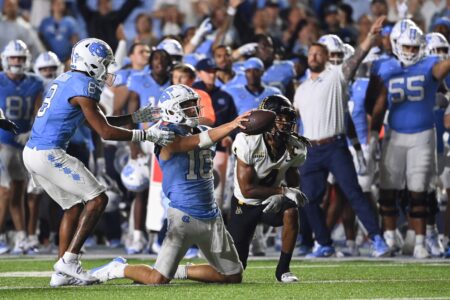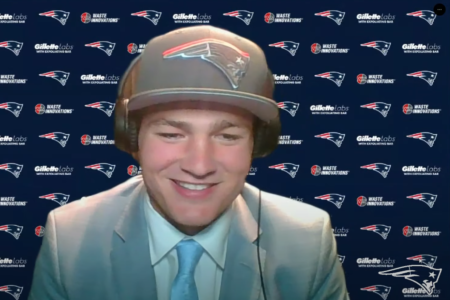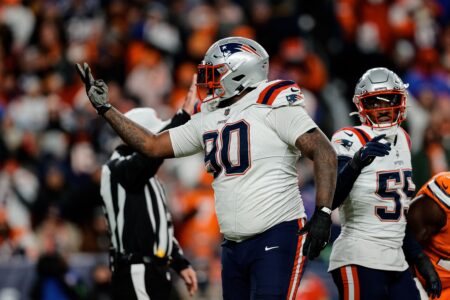- Joined
- May 1, 2008
- Messages
- 16,682
- Reaction score
- 3,686
There's no way I can argue with our success but we definitely are too conservative. In the past we definitely favored proven vets and we didn't trust younger guys with potential and we don't always cover our bases well but it seems like things are changing for the better. I'll give a few examples.
We preach competition but sometimes vets win just by showing up. In 09 terrence nunn clearly outperformed galloway and greg lewis but galloway who sucked more than anybody made the team. Same thing with saving spots for troy brown and kevin faulk. Yeah I love them but faulk's spot could have been spent scouring the league for safeties and tight ends since we only had two. In my eyes sterling moore should have never been cut at any point last year or even tiquan when faulk was doing absolutely nothing. We had gerrad warren sitting at home waiting for injuries to happen to get signed but he should've always been on the team and faulk should've been by the phone instead.
Also BB always plans for the future but the trading of ellis hobbs til this day made no sense too me. We already lost samuel so you go and get rid of our next best guy and kick returner for basically nothing(rich orhberger). And then we get rid of our next kick returner(tate) for ocho. The waste of money and draft picks on derrick burgess and tully made no sense. Tully had the worst 10 sack season i have ever seen and was pissed we resigned him but these failures finally opened up bb eyes.
We are struggling with a 3-4 pass rush and he finally goes to a 4-3 with carter and anderson and we get the best pass rush since 07. We may very well go back to a 3-4 but jones who projects to do exactly what carter did says otherwise and just the fact that he was willing to trade up for him shows BB is done being stubborn and is going to put a fix to some of the most glaring problems we have seen for a long time. I can really tell things are changing because there are guys im not too fond of but the guys that just flat out held us back are slowly disappearing and im pretty low on whipping boys. BJGE lack of speed is gone, pretty sure sergio brown won't see the field and we got gaffney and lloyd. Also i rewatched the raider game and that shows how ocho can make it in this offense imo. As it stands, the only guys I flat out hate are edelman(hate him as a wideout), sergio brown(no need to explain), and myron pryor(his pass rush doesnt make up for his subpar run defense).
Wow, there's a lot of things to respond to here. I'll start by reiterating Ken's point above: the Pats aren't afraid to make mistakes, and they aren't afraid to "admit" them - or at least, to move on from them. In fact, I argued in the OP that they probably assume that mistakes are an inevitable consequence of personnel management in the NFL.
There's no doubt that BB has favored veterans. One could argue that his track record of success justifies his belief. I certainly agree with you that there have been cases in which he has been conservative to bring young players along or has slowed their development in favor of keeping a veteran presence in the lineup. I think that in 2010 he was forced to start more youngsters than he would have liked and was pleasantly surprised by the results, and that he seems to be a bit less conservative about letting rookies earn playing time. Jerod Mayo, Sebastian Vollmer, Devin McCourty, Rob Gronkowski, Aaron Hernandez, Brandon Spikes, Jermaine Cunningham and Nate Solder all got considerable playing time as rookies, and for the most part did well.
I agree with you to some extent about some of the cuts, and keeping spots for veterans. I wasn't in favor of bringing back Kevin Faulk in 2011, or of keeping a roster spot for Nick Kaczur in 2010. I think many of us hated giving up a 3rd and a 5th for Derrick Burgess. Again, I think it's inevitable that mistakes will be made. You roll the dice on players, and they don't always work out. Brian Waters was a brilliant pickup. Chad Ochocinco and Albert Haynesworth weren't. It wasn't obvious at the time that that was how it would work out. I think what does matter is, as Ken stated, the Pats seem to be willing to cut their losses and also to learn from their mistakes. That alone would put them ahead of most teams in the NFL, many of whom repeat the same mistakes over and over again.
















